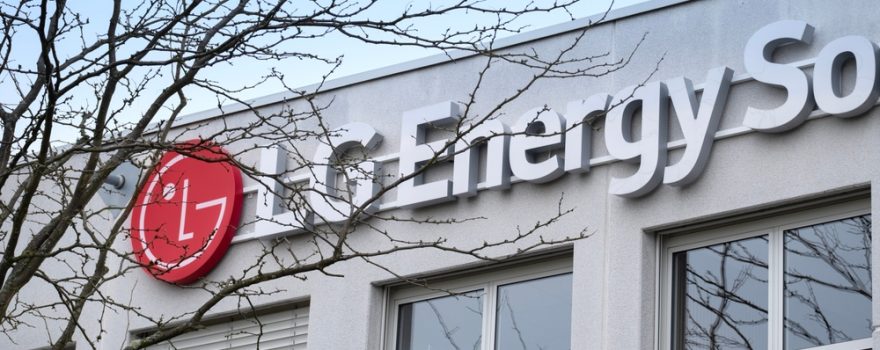
Battery maker LG Energy Solution Ltd.’s second-quarter profit fell short of analyst predictions, reflecting a broader deceleration in electric vehicle (EV) sales.
Operating profit for the three months ending June 30 plummeted 58% from the previous year, landing at 195.3 billion won ($141 million), the Seoul-based company announced Monday. This figure fell significantly below the 282 billion won estimate compiled by Bloomberg. Excluding a tax credit from the US Inflation Reduction Act, LG reported an operating loss of 252.5 billion won. Revenue also took a hit, dropping 30% to 6.2 trillion won.
The EV industry, crucial to LG Energy’s market, has been facing significant challenges. Stellantis Italy’s car production has slumped, China’s BYD has signed a deal for a $1 billion plant in Turkey aiming at the European market, and Lucid has reported better-than-expected quarterly EV sales. Meanwhile, Chinese EV maker BYD is set to acquire a 20% stake in a Thai distributor, intensifying competition.
LG Energy’s preliminary report highlights a turbulent period for the company, with final results expected later this month. Following the announcement, LG Energy shares dipped as much as 1.4%, stabilizing somewhat but remaining under pressure.
The company’s key customers, including Tesla Inc. and General Motors Co., have been grappling with slower EV sales and a drop in lithium prices affecting battery prices. Automakers are urging battery suppliers to lower costs to make EVs more affordable amid high interest rates, which are dampening demand. Concurrently, LG Energy’s share of the global EV battery market is shrinking due to the rise of Chinese competitors.
Tesla’s global EV market share fell to 11.1% through May this year, down from 14.8% last year, according to SNE Research. This decline is attributed to the aging Tesla lineup struggling against newer models from rivals. In Europe, automakers like Volkswagen AG, Stellantis NV, and Mercedes-Benz Group AG are re-evaluating their battery projects, further complicating LG Energy’s outlook.
“The price of batteries for EVs slumped by almost $50 per kilowatt-hour from its high to around $100,” said Dongjin Kang, an analyst at Hyundai Motor Securities Co. in Seoul. “This means the battery cost for GM’s electric SUV Equinox dropped nearly by $4,000. Automakers are reluctant to purchase batteries now, anticipating further price reductions in the second half.”
For more details, visit the source.




